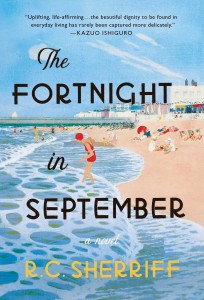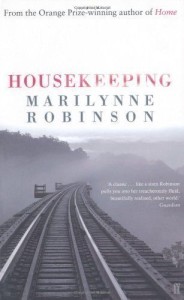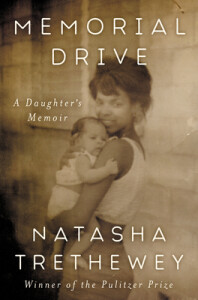
Touted as an escape from the pandemic, this 1931 novel follows a lower-middle-class London family as they go on their annual vacation to the seaside holiday spot Bognor Regis.
Mr. Stevens carefully updates his Marching Orders, the list of what each person needs to do to prepare for the trip, not out of an autocratic need to control but from a genuine desire to have things go well for everyone. Mrs. Stevens hides her terror of the sea because her family always has such a good time. Dick at 17 and Mary at 20 good-humoredly go along with their father—no teenage rebellion here. Only young Ernie kicks up a ruckus, wanting to bring his toy yacht even though it is inappropriate for the sea.
They always stay at the same place, the Seaview, even though the place and its landlady are not aging well. But the Stevens family are loyal to the good old Seaview. This gentle narrative lets us enjoy the peculiar pleasure of stepping out of ordinary life into a brief vacation, one that is so much the same every year that it has become a ritual.
While the pace rarely quickens beyond a brief flutter, such as the one over whether to rent a slightly more expensive beach hut, one of the interesting threads in this story is about time. Of course, there is the cliché about time racing when you’re doing something fun and standing still when you’re not, and the changes time is bringing to the Seaview and Mrs. Huggett. However, there are also more interesting insights, such as this one:
They had reached the strange, disturbing little moment that comes in every holiday: the moment when suddenly the tense excitement of the journey collapses and fizzles out, and you are left, vaguely wondering, … [w]hether the holiday, after all, is only a dull anti-climax to the journey.
There’s also the way Mr. Stevens makes little special occasions and traditions for his family “to strengthen the links of a home.” And the way this annual vacation becomes a time outside of time for the family, though haunted by its finite nature.
The man on his holidays becomes the man he might have been, the man he could have been, had things worked out a little differently. All men are equal on their holidays: all are free to dream their castles without thought of expense, or skill of architect. Dreams based upon such delicate fabric must be nursed with reverence and held away from the crude light of tomorrow week.
I was alone in my book club and seemingly alone as well among the avalanche of positive reviews at being dismayed by the portrayal of this family. They seemed unrealistically superficial to me. For example, they do everything together and are unfailingly sweet to each other. There’s no interpersonal tension; they are a whole family of Beths from Little Women.
Of course, they do fit in with the saccharine characters in popular stories of the time, something I tried to remind myself. And the story is clearly meant to be a diversion, a beach read rather than a literary experiment. No point expecting the complexity of Virginia Woolf’s The Waves published the same year.
But what I kept coming back to is the class issue. In the extract from the author’s autobiography appended to the book, Sherriff says while on holiday at Bognor he enjoyed watching people and trying to imagine their lives. Eventually, he decided to choose one at random and “build up an imaginary story of their annual holiday by the sea.”
And the people he imagined are simple people, so simple as to seem fairly brainless. They are content with their tiny, tightly constrained lives, with rarely a thought beyond—on rare occasions—career advancement or lack thereof (Mr. Stevens), having a little time to herself at night (Mrs. Stevens), cricket (Dick and Ernie), or possible romance (Mary).
Mr. Stevens buys a Times for the train because he likes “the feeling of culture it gave out” and enjoys a few little articles that make him wonder about things that he might “find out about . . . one day, when he had the time.” Mr. Stevens goes for a long walk every year to think things through. This year Dick goes on one too. So we are treated to an extended look at their stunted and unimaginative thought processes.
Yes, it’s a restful and sweet novel with many little nuggets that gave me a jolt of recognition, thinking Oh, yes, that’s exactly how it is. I just wish the author could have looked past the snobbish stereotype that the lower classes are just simple people living simple lives and perfectly happy that way. In his famous play and film Journey’s End about WWI, Sherriff gives Mason the cook much more depth, enough to equal the officers, though that may be the brilliance of Toby Jones’s performance rather than the written lines.
In this book, there is no hint of that war, except perhaps in Mr. Stevens refusal to look more deeply into the news. However, here another interesting thread is about change. The vacation is an annual ritual, carefully reenacted, yet there is the parents’ concern that Dick and Mary might be getting too old for it and want to do something else or perhaps stay somewhere else. We do see both young adults starting, however tentatively, to think of life beyond the family.
Then there are the changes to the Seaview and Mrs. Huggett. Most of all, as one member of my book club pointed out, there’s the fact in only eight years a power-hungry autocrat will start another war, one that will devastate England and change their lives forever.
What is your favorite beach read this summer?



